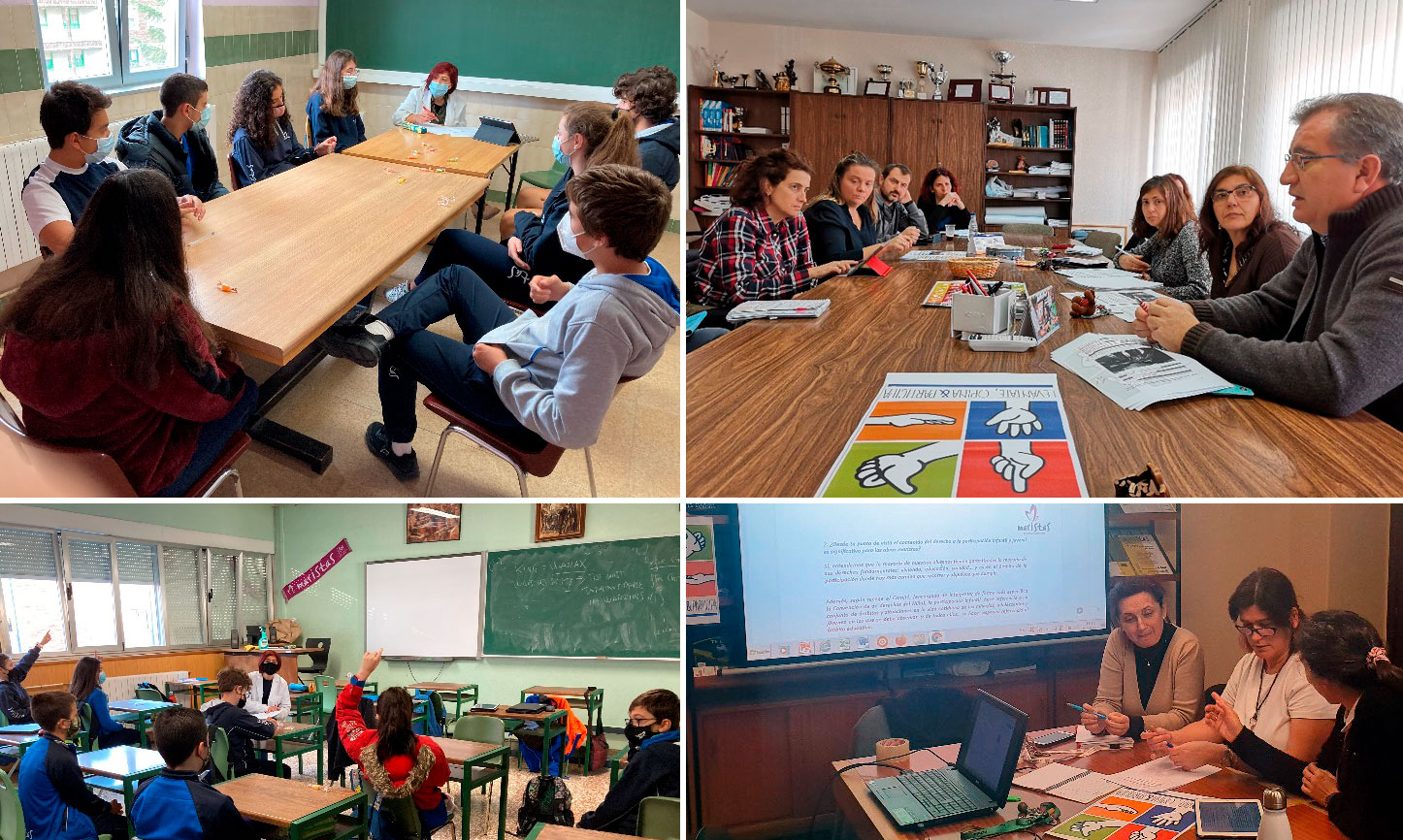
“Stand Up, Speak Up & Act” Project in the Province of Compostel
Within the framework of the “Stand Up, Speak Up & Act” Project, the Province of Compostela has presented the conclusions of the consultation carried out with 1720 students, 72 educators and 20 leaders of Marist works on the presence of children and young people in the Marist community.
Through the results of the participatory process, the Province of Compostela has sought to gather information and make proposals together with the Secretariat of Education and Evangelisation of the General Administration, which is proposing this project to the whole Institute.
Through the Provincial Education and Evangelisation team, the Province of Compostela has drawn up a final report and suggested some areas for progress:
- Promote focus groups on aspects of improvement in the works: coexistence, health, tutoring, child protection, inclusion, festivals, activities, learning…
- Design learning experiences that generate moments of participation: learning projects, debates, agoras, moments of oratory work, etc.
- Promote meetings with the leaders of the Marist works where suggestions are put forward.
- Eliminate the fears of educators and leaders of Marist works in giving a voice to children and young people. ·
- Communicate in an open way and with appropriate language what we are advancing, promoting the protagonism of children and young people in their own communication.
- Ensure that everyone is represented in the participation process, promoting inclusion and co-responsibility.
Giving children and young people a voice in the choice of extracurricular activities offered by the educational work.
During the participatory process, the working groups also noted that it is necessary to educate children and young people in a climate of trust and security so that they can express themselves at school, and to break with the anonymity of social networks. It is also important to reconsider the role of the teacher as educator and instructor. Similarly, it is relevant to learn from childhood to develop democratic skills and values, which form responsible citizens. It is worth mentioning that through the free opinion forums, 3 topics of interest among children and young people emerged, which need to be taken into account:
- Affective-sexual education.
- Dialogue-based management of school coexistence.
- Choice and planning of educational outings outside the school.
Among its conclusions, the province of Compostela mentions that:
· In the development of rights, it is essential to believe as educators in the processes that are being implemented.
· Emotional education, interiority sessions, cooperative learning… are highlighted as aspects where children and young people (NNAJ) themselves express themselves.
· It is necessary to evaluate the communicative and not so much participatory methodology with young people. They often do not perceive how different aspects of school life work (what decisions the school can and cannot take, how certain decisions work, the reasons for certain organisational issues and school regulations…). “We are not pedagogical, nor are we clear in conveying to them the whys and wherefores of issues that affect them, but of which they feel they are merely recipients. This feeling would change with good communication of these aspects”.
